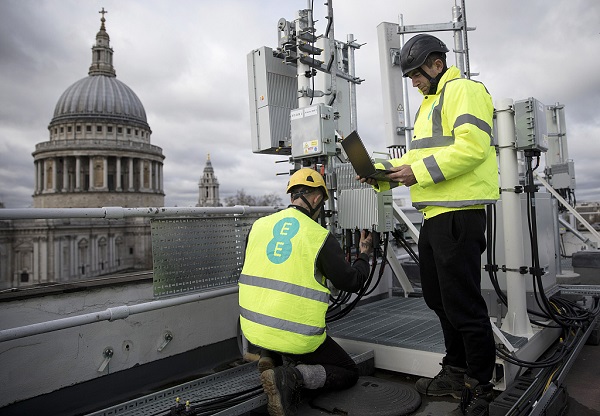The GSM Association (GSMA) said the ban on telecoms equipment from Chinese companies would cost Europe about 55 billion euros ($62 billion) more on 5G networks and delay the technology in Europe by about 18 months, according to Reuters.

Engineers from EE the wireless network provider owned by BT Group Plc, inspect Huawei Technologies Co. 5G equipment overlooking St. Paul's Cathedral during trials in the City of London, UK, on Friday, March 15, 2019. (File Photo: VCG)
The GSMA represents the interests of mobile operators worldwide, uniting more than 750 operators with almost 400 companies in the broader mobile system, according to the group’s website.
The estimate is part of a report by the group.
The US blacklisted China’s Huawei Technologies in May, prompting global tech giants to cut ties with Huawei and putting pressure on European countries to follow suit, the report said.
Reuters said that GSMA has already voiced concerns about the consequences of a full ban on Huawei, whose products are widely purchased and used by operators in Europe.
The 55-billion-euro estimate reflects the total additional costs implied by a full ban on purchases from Huawei and its Chinese peer ZTE for the rollout of 5G networks in Europe. The two Chinese vendors have a combined market share in the EU of more than 40 percent.
Half of this additional cost would be due to European operators being impacted by higher input costs following the significant loss of competition in the mobile equipment market, the report said.
According to the report, the ban would also delay the deployment by 18 months of 5G technology, which will be used in areas ranging from self-driving cars to health and logistics.
Such a delay would widen the gap in 5G penetration between the EU and the US by more than 15 percentage points by 2025, according to the report.
This delay would result from delivery challenges for other major equipment makers, such as Ericsson, Nokia and Samsung, in the event of a sudden surge in demand.
It would also follow from the need for telecoms operators to transition from one set of equipment to another.


